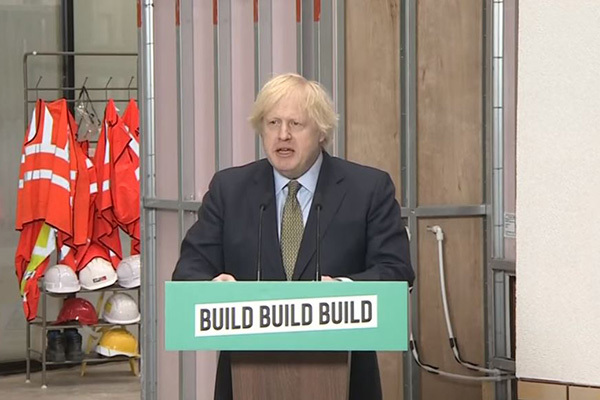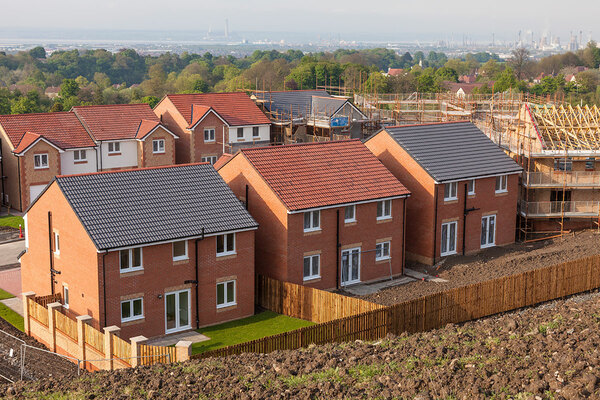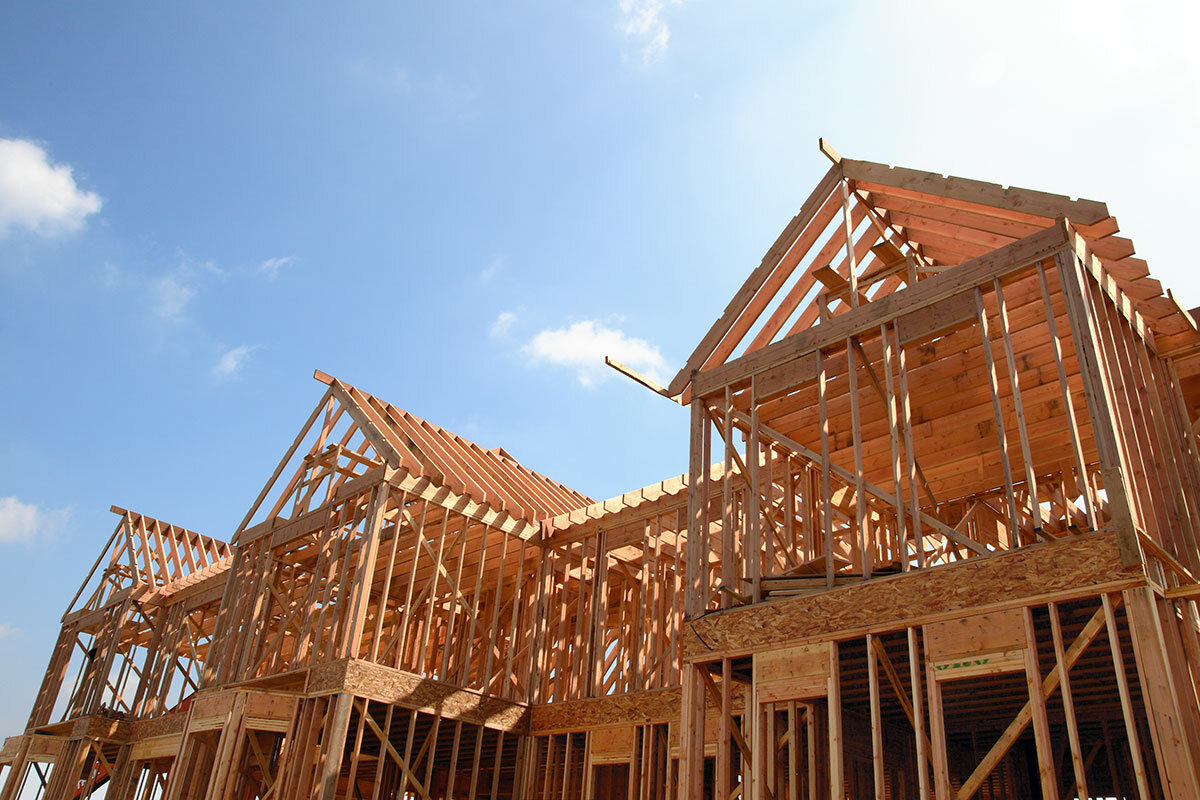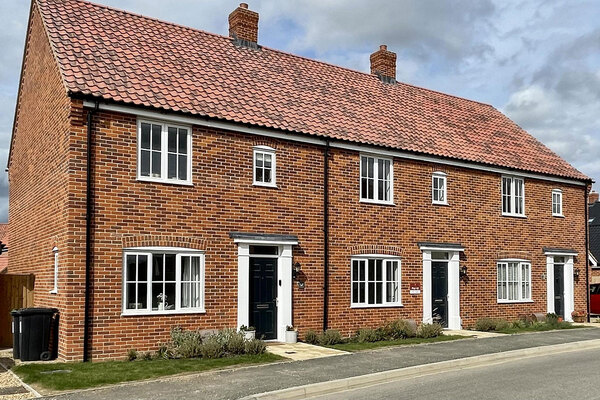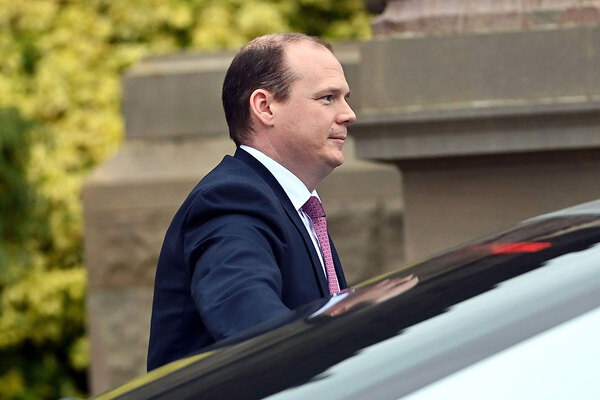 Jules Birch
Jules BirchBoris’ vision was more ‘blah, blah, blah’ than ‘build, build, build’
The prime minister promised a “new deal” at his set piece speech on building Britain out of the crisis. But as Jules Birch points out, there was precious little cheer for the affordable housing sector
It was less “build, build, build” than “blah, blah, blah”, less new deal than reheated old announcements.
Boris Johnson’s big speech on Tuesday, plus the accompanying announcements on housing and planning, were billed as the start of the recovery after coronavirus.
They arrived amid a chorus of calls for greater investment, the Homes for Heroes campaign, and a warning from Shelter and Savills that output of new homes will fall by 85,000 this year because of the pandemic, with just 4,300 for social rent.
Come the moment, the prime minister sank to the occasion and even managed to wrongly imply that the Affordable Homes Programme (AHP) will be cut.
Where the Budget in March had promised £12.2bn over the next five years, Mr Johnson suggested in his speech that it would now run over eight. Taken at face value that would mean a cut of 38 per cent from £2.4bn a year to £1.5bn.
This figure is roughly the same annual commitment as in the current AHP would represent a slap in the face for everyone who has campaigned for or needs an affordable home.
Not so fast, though. No 10 soon clarified that when he said eight years he was actually talking about the three-year time lag for homes to be built after the end of the programme. Social Housing magazine was given the slightly different line that the extra three years applies only to the £2bn strategic partnerships announced in September 2018.
That sounds just about plausible but if true this must represent the first time that Mr Johnson has ever under-hyped anything. He even missed the chance to double-count lagging completions from the last AHP as within his eight years.
If we suspend judgement on all of this confusion for now, the other interesting point Mr Johnson made about the AHP is that it will include a pilot of 1,500 First Homes, the scheme promised in the Conservative manifesto that gives a 30 per cent discount to first-time buyers.
While not as damaging as Starter Homes (the discount would be passed on to subsequent buyers) the fear was that financing it out of Section 106 contributions would mean that fewer affordable homes of other types get built.
The fact that First Homes will now be part of the AHP and piloted on a relatively small scale could imply that the government has heeded responses to its consultation that closed in May.
The other big announcement was on planning, although it turns out to be mostly a reannouncement.
“Mr Johnson’s tone could suggest a more house builder-friendly outcome than looked likely earlier in the year”
As trailed in several Budgets and policy papers over the past three years, permitted development rights will be extended to allow some new housing developments inside urban areas without the normal planning permission.
The new regime will apply to conversions of high street shops, upwards extensions of residential blocks, and demolition and replacement of “vacant and redundant residential and commercial buildings if they are rebuilt as homes”.
This would represent a slight change to the plan proposed by housing secretary Robert Jenrick in a policy paper in March that referred to “a right to allow vacant commercial, industrial and residential blocks to be demolished and replaced”. Note that the new version adds “redundant” and does not include “industrial”.
But that still leaves all the other objections to permitted development. The government may be promising that “developers will still need to adhere to high standards and regulations, just without the unnecessary red tape” but that will not inspire much confidence.
First, there’s the issue of quality: you do not have to look very far to find awful examples of tiny studios crammed into inappropriate buildings sold and rented out for maximum profit and it is not hard to predict some terrible upwards extensions. A review of the quality of homes delivered under the existing system was promised last year but has still not been published.
Second, what about affordable housing? Section 106 does not apply to permitted development, so why would any developer bother with sites with planning obligations when they can redevelop existing buildings without any?
Third, there’s the leasehold scandal: as the law stands, upwards extensions of existing residential blocks will mean windfall profits for freeholders while making it harder and more expensive for leaseholders to enfranchise as the value of their buildings rises.
The extensions of permitted development are meant to apply from September but are just the first stage in what Mr Johnson boasted would be “the most radical changes to our planning system since the Second World War, making it easier to build better homes where people want to live”.
A planning policy paper is promised this month (July) and is expected to cover ideas such as zoning, development corporations and the “fast track to beauty” proposed by the Building Better, Building Beautiful Commission.
The detail remains to be seen but Mr Johnson’s tone – and his reference to “newt-counting delays in our system” – could suggest a more house builder-friendly outcome than looked likely earlier in the year.
For example, there was no mention on Tuesday of proposals in the March policy paper to take action to ensure that permissions are built out by “requiring complete transparency on land options”.
One final interesting, and depressing, aspect of Tuesday’s announcement was something else that was not included.
“Third, there’s the leasehold scandal: as the law stands, upwards extensions of existing residential blocks will mean windfall profits for freeholders while making it harder and more expensive for leaseholders to enfranchise as the value of their buildings rises”
The 2019 Conservative manifesto promised to “lower energy bills by investing £9.2bn in the energy efficiency of homes, schools and hospitals”.
A costings paper attached to it set out plans for a Social Housing Decarbonisation Fund worth £3.8bn over the next 10 years and homes upgrade grants worth £2.5bn over the same period.
Quite apart from directly addressing one of the key housing issues of the next decade, this seemed to have real potential for the government’s ‘levelling up’ agenda if the work started in the North and the Midlands. Repair, maintenance and improvement work like this also generates more jobs than new build.
There was little sign of any of it in Tuesday’s announcements, which promised to promote “a clean, green recovery” but had nothing to say about decarbonisation of housing.
The Financial Times reported on Monday that the whole programme has stalled, with the prime minister’s chief advisor Dominic Cummings calling it “boring old housing insulation” and reportedly arguing for the money to be spent on new homes instead.
Perhaps there will be more to come when chancellor Rishi Sunak makes a financial statement later this month or in the autumn.
So far, faced with landlords calling for evictions to restart at the end of August and renters warning that homelessness could treble as arrears rise, Boris the Builder has failed to come up with anything that looks like it could respond to a looming surge in demand for social and affordable housing.
Can he bodge it? Yes he can.
Jules Birch, columnist, Inside Housing
